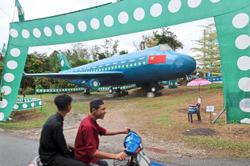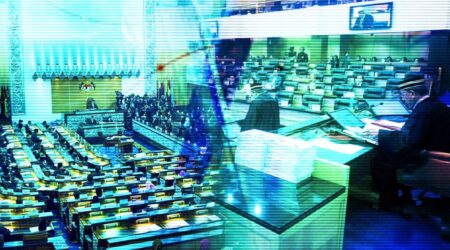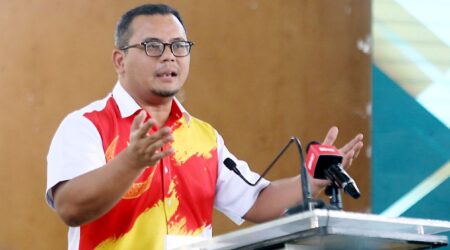‘Green wave will lead to more racial divisions in the nation’
PETALING JAYA: The rise in support for Perikatan Nasional along the ethno-nationalism sentiments, known as the green wave, will lead to more racial divisions in the nation, say politicians and analysts.
According to Selayang MP William Leong of Pakatan Harapan, the continued popularity of the votes for Perikatan by the Malays for the Malays – will continue.
“The message of the green wave was not confined by borders and locality. It is populism and identity politics.
“The continued rise of the green wave is an expected push-back against multiracialism and multiculturalism.
“This push-back will continue until the majority of Malaysians learn that ethno-nationalism is dangerous and leads to fragmentation of our society.
“The same issue is faced in many parts of the world as people seek quick answers to problems of inequality and marginalisation,” said Leong.
Parti Pribumi Bersatu Malaysia youth chief Wan Ahmad Fahysal Wan Ahmad Kamal said Perikatan managed to capture the votes and maintain its rise despite being clamped by the Pakatan-Barisan government in many ways – including the freezing of its party funds.
Wan Fahysal added the rise of the Malays who voted along the racial lines was due to the tag team of Prime Minister Datuk Seri Anwar Ibrahim and his deputy, Datuk Seri Ahmad Zahid Hamidi.
The appointment of Ahmad Zahid had even been criticised by Pakatan supporters initially as he still faced 47 corruption charges.
Meanwhile, Universiti Sains Malaysia’s political scientist Prof Datuk Dr Sivamurugan Pandian said the division along racial and religious lines could be clearly seen, particularly in Penang and Selangor, where voting patterns reflected these fault lines.
“In Penang, DAP won 19 Chinese-majority seats, while Perikatan won 11 Malay-majority seats.
“This voting pattern was also seen in Selangor where DAP retained the 15 Chinese-majority seats while Perikatan won 22 Malay-majority seats,” he said.
However, he said polarised voting was not the sole reason for Perikatan’s inroads in these states.
“While Perikatan was successful in manipulating sentiments in their favour, there were also the silent majority who refrained from voting as a sign of protest,” he added.
Dr Tunku Mohar Tunku Mohd Mokhtar of International Islamic University Malaysia said voter polarisation was a trend which started during the last general election.
“The results of the state polls suggest the prevalence of ethnic politics in Peninsular Malaysia.
“At the rate things are going, Perikatan is preparing itself to be the majority coalition in the next general election,” he said, adding that the Pakatan-Barisan coalition faces the challenge of winning over voters through inclusive and moderate policies.
“Perikatan is winning seats where the Malay majority voters make up between 50% and 60%, which means Malay rejection of Umno is very strong,” he added.
Political scientist Dr Azmil Mohd Tayeb said Anwar has a lot of work to do in building bridges, particularly gaining the trust of the Malays.
“He (Anwar) has to rethink the position of Barisan in the coalition since it can no longer attract the Malays,” he said, adding that Perikatan will not able to rely solely on the Malay votes if the coalition intends to move forward.
“It must move beyond playing ethno-religious sentiments and start acting like a responsible opposition,” he said.













Leave a Reply